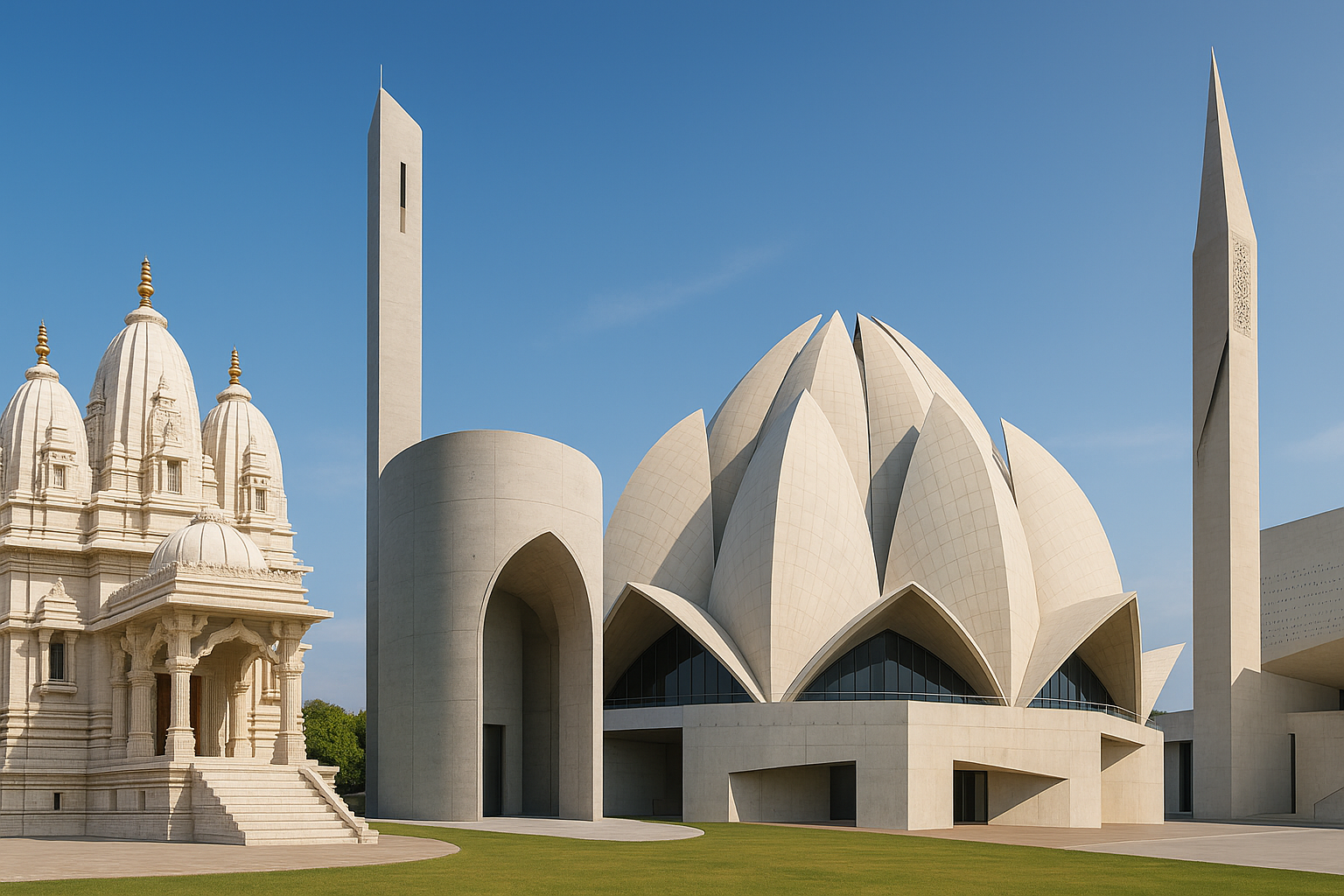In recent years, sacred architecture has undergone a bold transformation. Temples and mosques—long rooted in tradition—are now embracing contemporary design philosophies, technological innovation, and sustainable practices. This shift doesn’t disregard the rich spiritual heritage of these spaces but reinterprets it through modern materials, forms, and sensibilities.
From minimalist concrete mosques to temples shaped like lotus blossoms or glowing crystals, today’s sacred structures reflect a broader movement: one that seeks harmony between the divine and the digital age. Let’s explore 15 awe-inspiring modern temples and mosques that are redefining how we design for the divine.
1. Bait Ur Rouf Mosque – Dhaka, Bangladesh
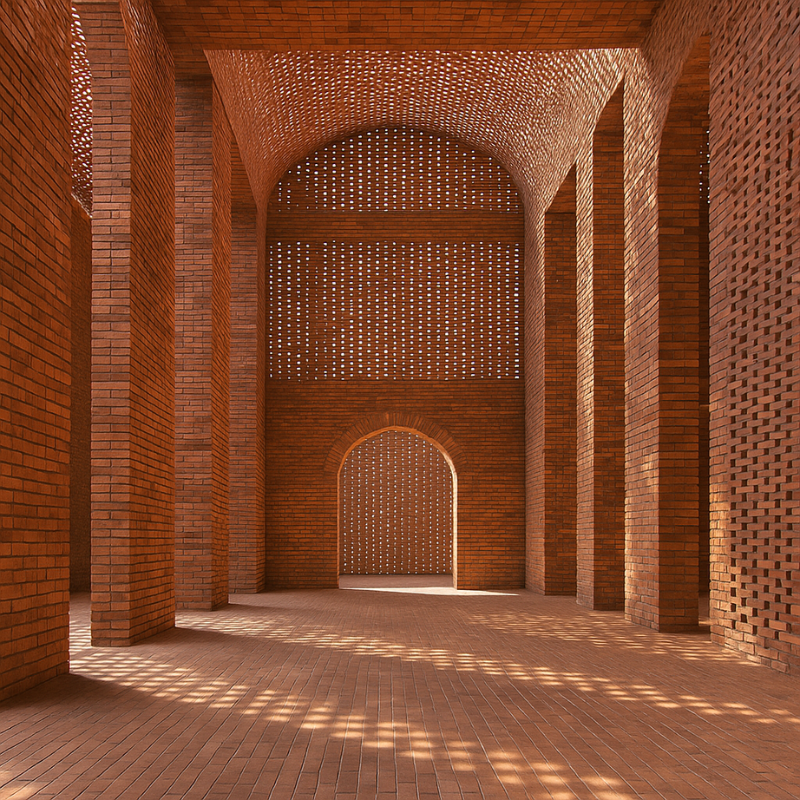
Designed by Marina Tabassum, this award-winning mosque abandons ornamentation for a quiet, meditative space built from humble red brick. Daylight streams in through perforated walls, creating patterns that shift throughout the day—bringing prayer and architecture into poetic alignment.
2. Lotus Temple – New Delhi, India
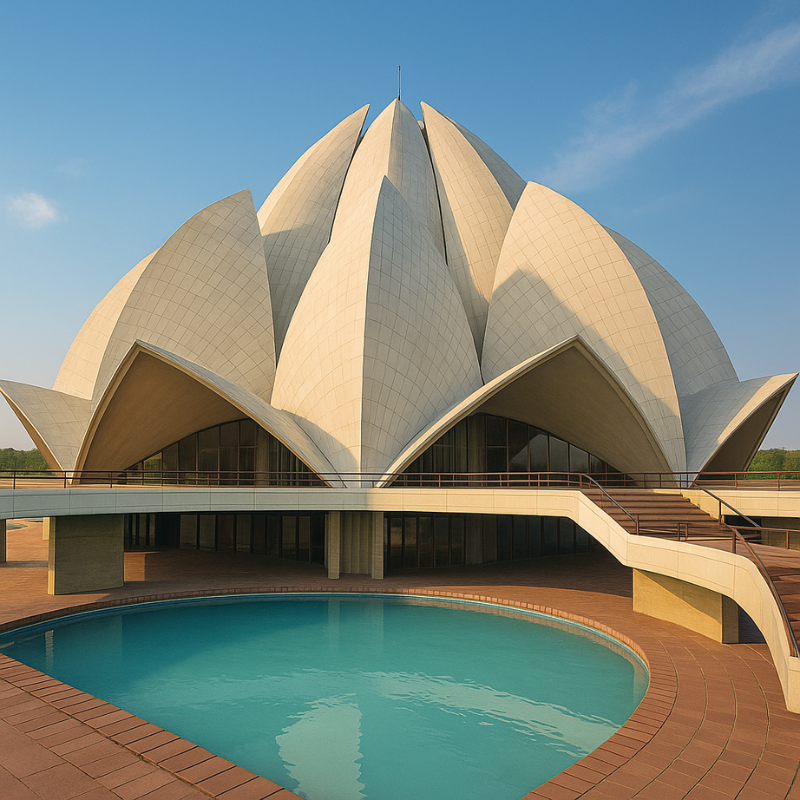
Although completed in 1986, the Lotus Temple remains a global icon of modern sacred architecture. Its petal-like marble forms represent purity, unity, and peace, drawing inspiration from nature while embracing symmetry and stillness.
3. Sancaklar Mosque – Istanbul, Turkey
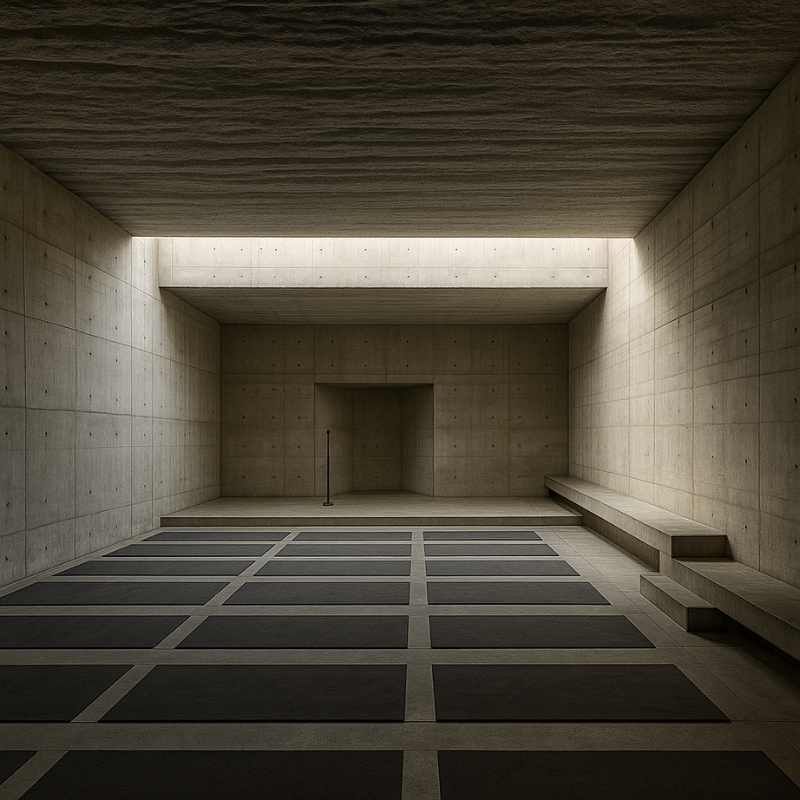
Carved into the earth like a hidden sanctuary, this mosque by Emre Arolat Architects strips away traditional embellishments to focus entirely on spiritual experience. Concrete walls and sunken spaces invite deep reflection in a setting that feels timeless and elemental.
4. Bahá’í Temple of South America – Santiago, Chile
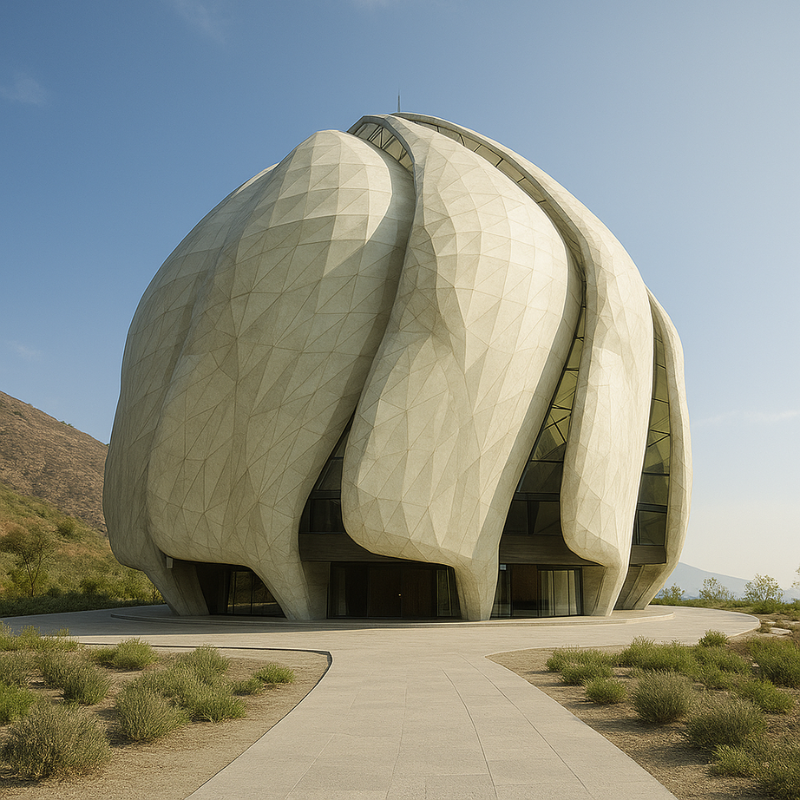
This ethereal structure by Hariri Pontarini Architects uses cast glass and marble to form nine curving “petals” that glow in natural light. Open to all faiths, it exemplifies the Bahá’í principle of unity and global inclusion.
5. Wat Ananda Metyarama – Singapore
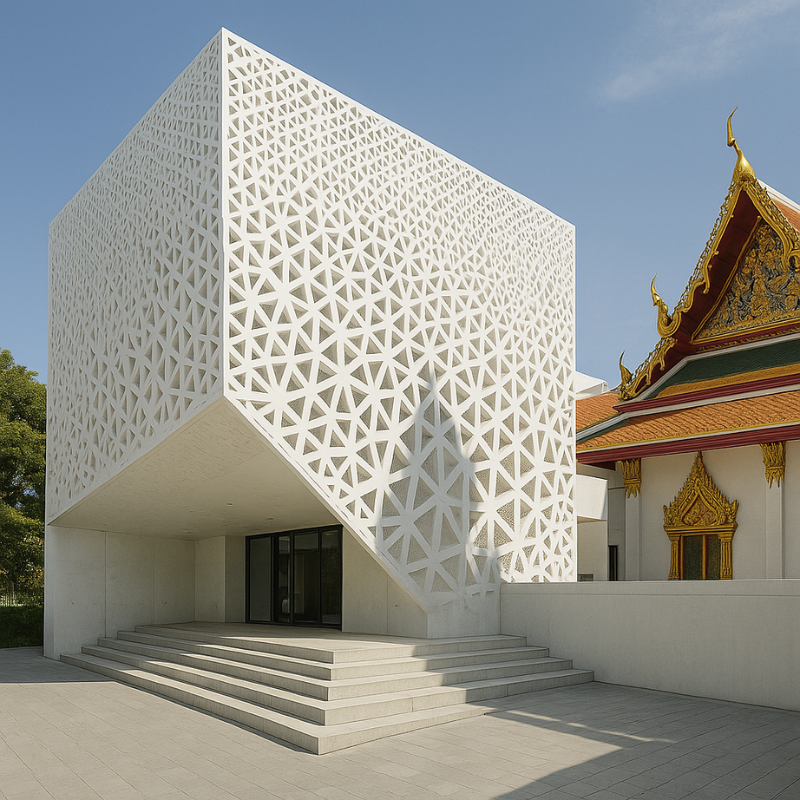
One of Singapore’s oldest Thai Buddhist temples received a dramatic modern extension. The new white façade, with its perforated geometric design, creates an interplay of light and shadow that evokes both serenity and wonder.
6. The Crystal Mosque – Kuala Terengganu, Malaysia
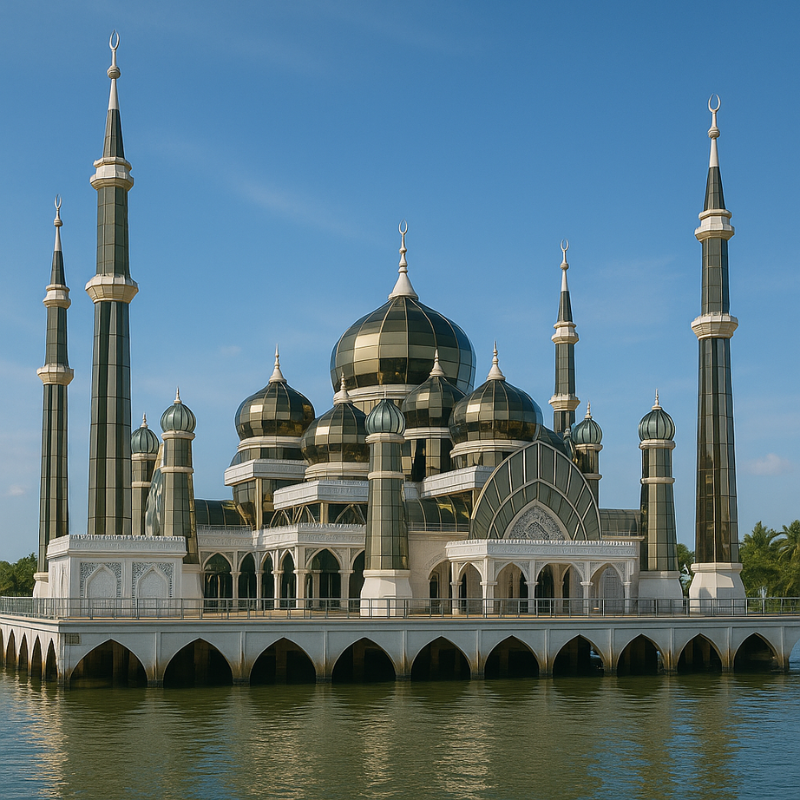
Made of steel, glass, and crystal, this futuristic mosque rises like a mirage on the riverbank. At night, it’s illuminated in a dazzling array of colors, reflecting the fusion of faith and technology.
7. Temple of Light – British Columbia, Canada
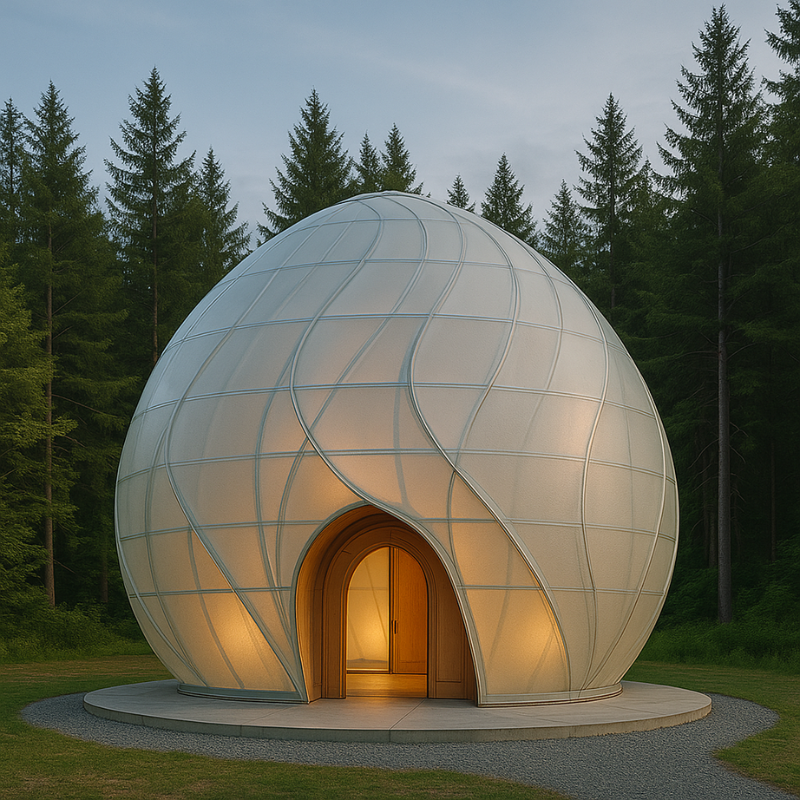
Set amidst forested terrain, this Bahá’í-inspired space is constructed from layered translucent panels that gently diffuse sunlight. Its circular design and soft light echo spiritual openness and the cycles of nature.
8. Noor Islamic Cultural Center – Ohio, USA
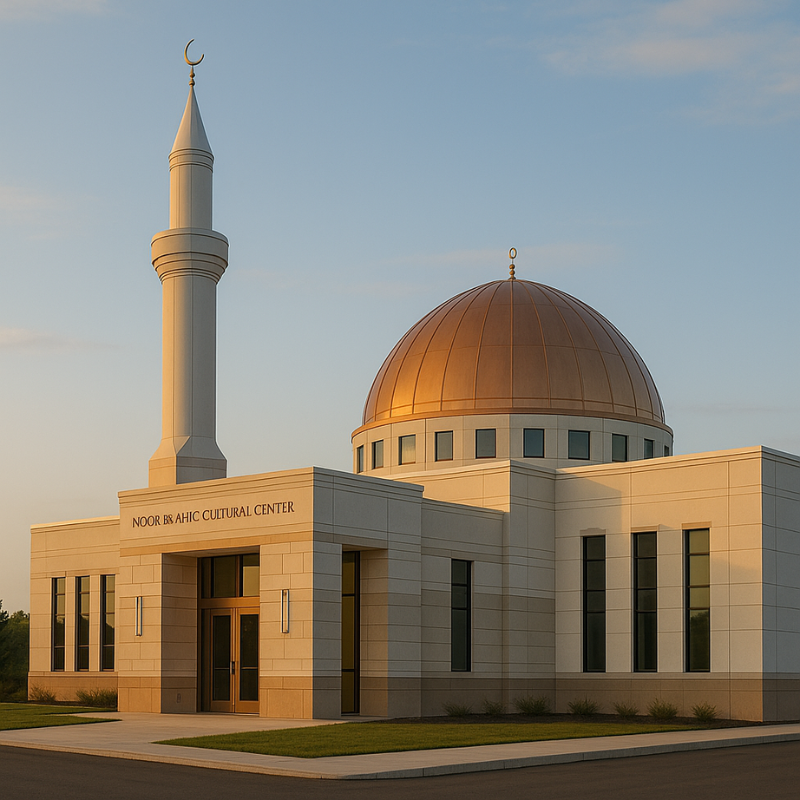
Designed for a diverse, growing community, this center combines clean architectural lines with energy-efficient systems. It includes a mosque, classrooms, and event spaces—prioritizing inclusivity and contemporary Muslim identity.
9. Jain Center of Southern California – Buena Park, USA
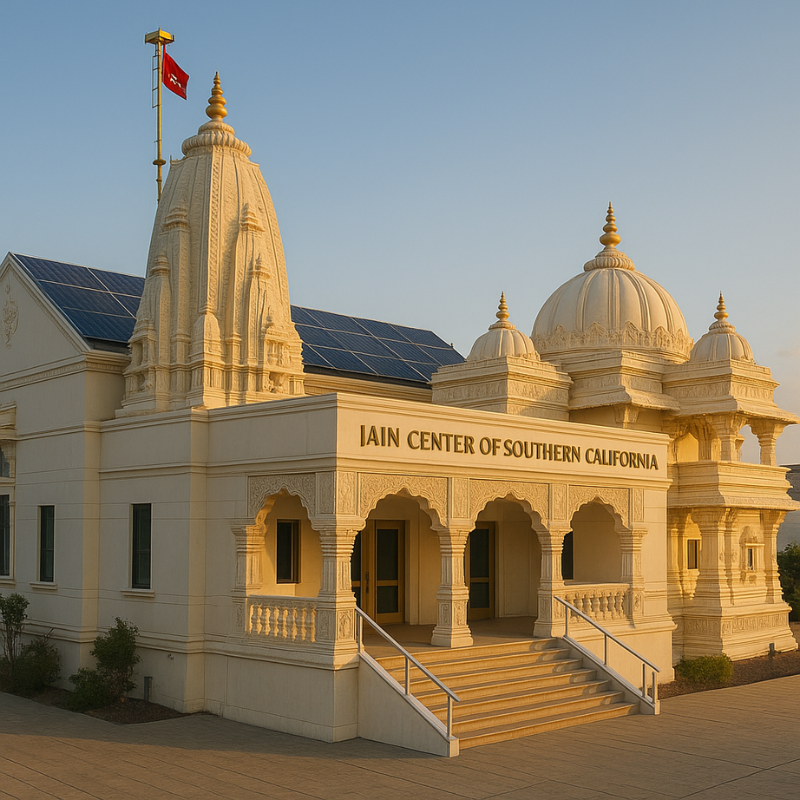
Melding tradition with modern infrastructure, this Jain temple preserves key religious symbols while using solar panels, modern lighting, and sustainable materials to serve a growing congregation.
10. ISKCON NVCC Temple – Pune, India
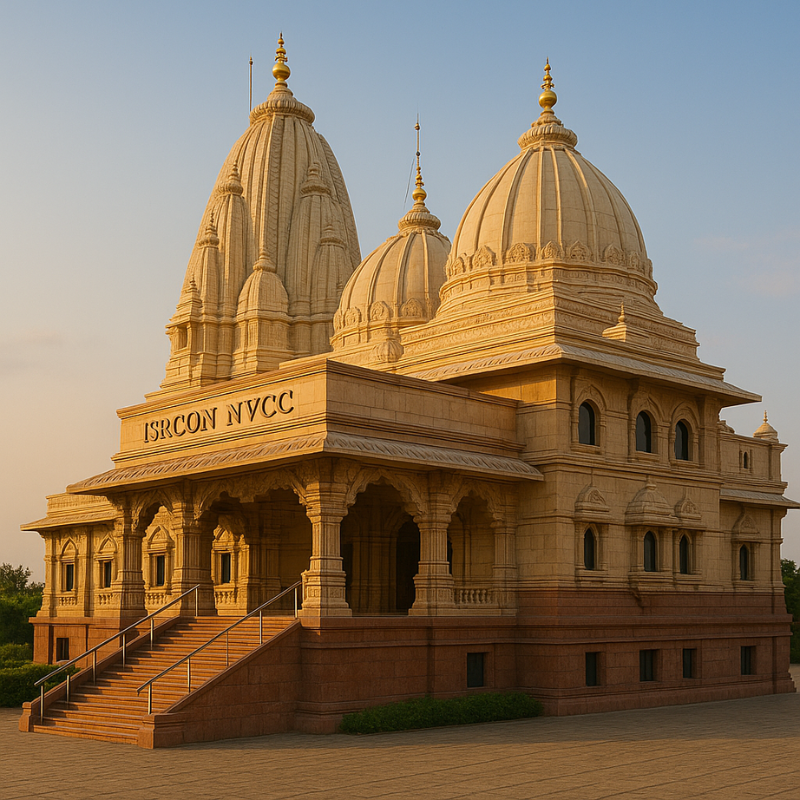
Inspired by ancient Vedic principles but executed with contemporary construction methods, this ISKCON temple features soaring domes and geometrically precise halls. It’s a perfect blend of devotion and design.
11. Imam Reza Mosque (Expansion)—Tehran, Iran
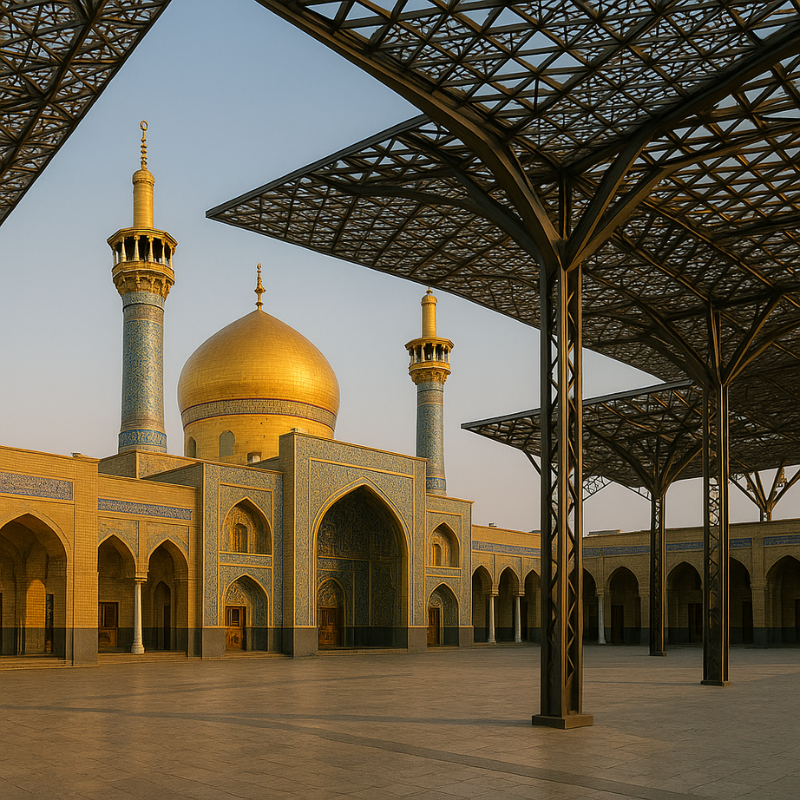
The recent expansions to this sacred site use open-air courtyards and modern metal frameworks to accommodate urban crowds without losing the essence of Persian-Islamic design.
12. The Light Mosque (Concept)—Abu Dhabi, UAE
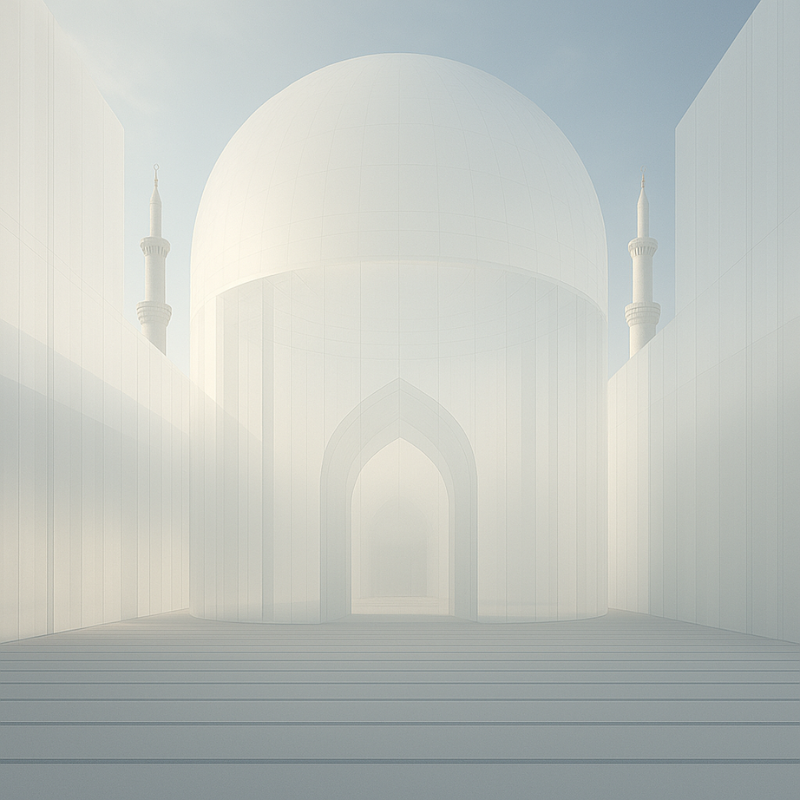
An exploration of how light shapes spirituality, this conceptual design envisions a mosque where walls are made of translucent materials. As the sun moves, so does the prayer space’s emotional tone.
13. Sri Sathya Sai Hospital Temple – Chhattisgarh, India
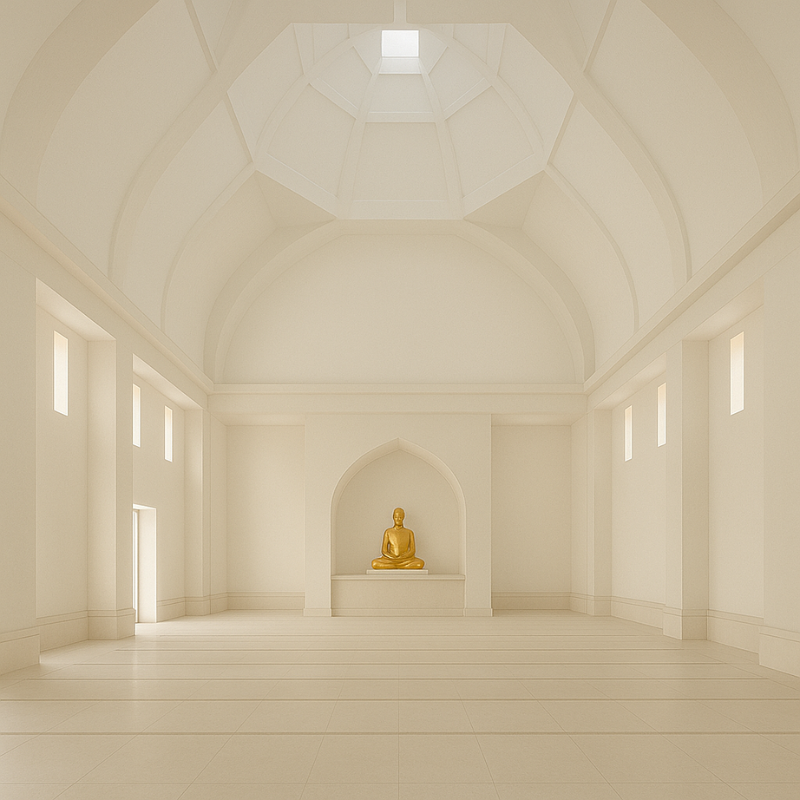
Located within a hospital complex, this spiritual space is a quiet oasis for healing and reflection. Natural lighting, clean geometry, and subtle detailing allow the soul to rest—even amid a healthcare setting.
14. CAMH Meditation Centre – Toronto, Canada
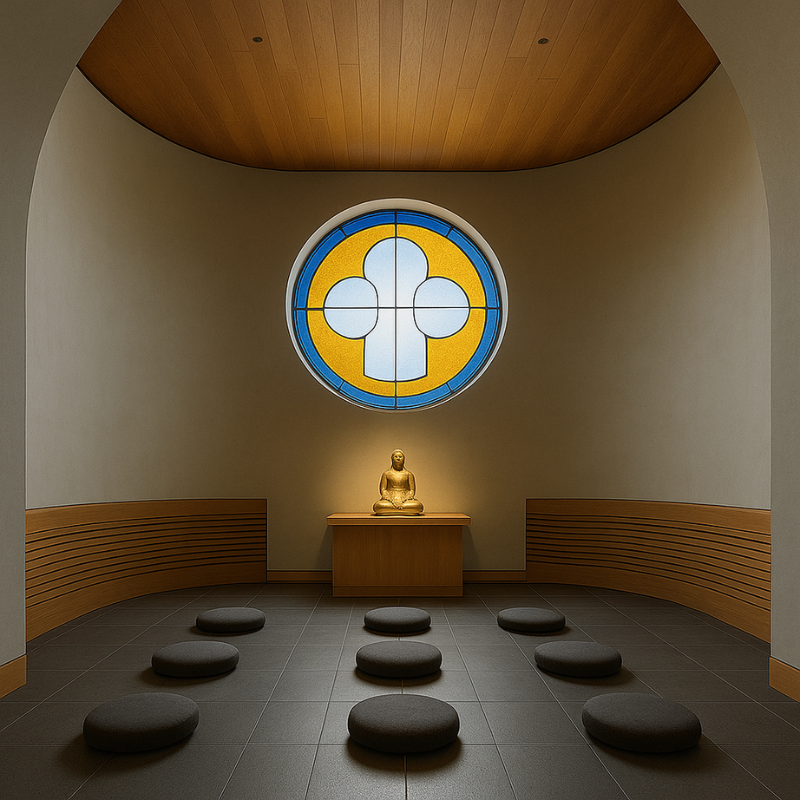
While not a temple in the traditional sense, this interfaith meditation space integrates spiritual symbols into a sleek modern form. Designed by Shim-Sutcliffe Architects, it uses curved walls, focused acoustics, and warm materials to encourage inner calm.
15. Great Mosque of Djenne (Reimagined) – Mali
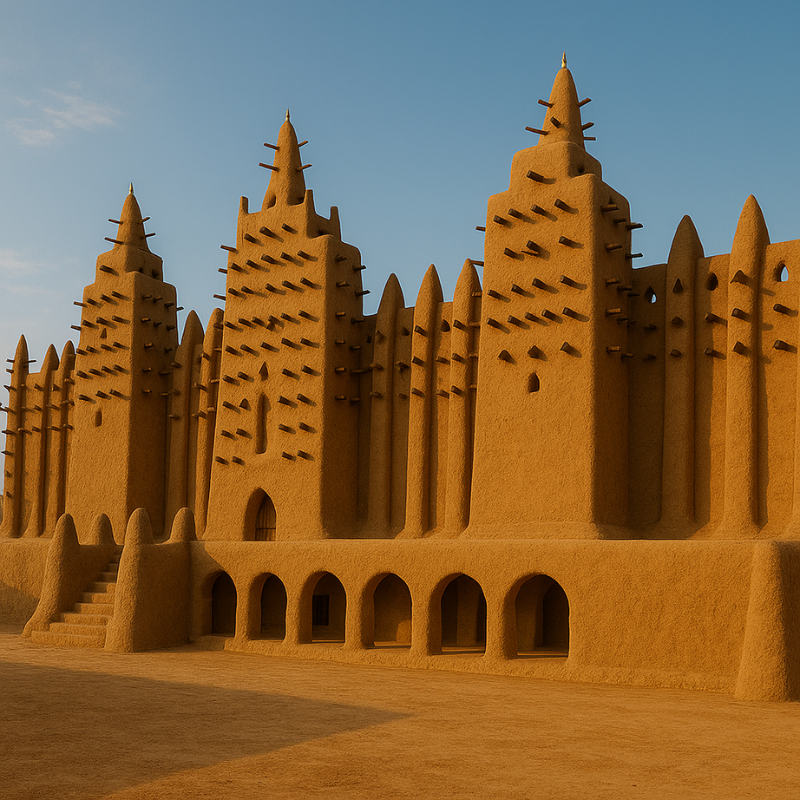
This historic adobe mosque has been preserved and updated with community involvement and modern reinforcements. It’s an example of how modern sacred architecture isn’t always about “new”—it’s also about stewardship and reimagination.
Why This Shift Matters
So, why are architects and communities moving toward modern expressions of sacred design?
For one, spirituality is evolving. Worshippers today come from diverse backgrounds and live in fast-paced, urban environments. They crave clarity, inclusiveness, and harmony with nature—values that align beautifully with modern design principles.
Secondly, new materials and digital tools allow for sustainable building practices, essential in a world grappling with climate change. Many of these temples and mosques use passive cooling, recycled materials, and solar energy, making them as responsible as they are beautiful.
And finally, these spaces are becoming cultural symbols—not just places to worship but places to gather, heal, and celebrate identity in its many forms.
The New Language of the Sacred
Modern temples and mosques challenge the idea that sacred spaces must always look “traditional.” They show us that sacredness lies not in gold domes or marble carvings, but in intention, light, space, and purpose. These structures welcome the world not with grandeur, but with grace.
They speak a universal architectural language—one of peace, presence, and possibility.
Inspired by Design That Moves the Spirit?
If you’re passionate about architecture that touches the soul, follow our stories at Ideas for Architecture. We celebrate design that goes beyond form—into meaning, purpose, and the future of how we build sacred spaces.
Stay curious. Stay inspired.





